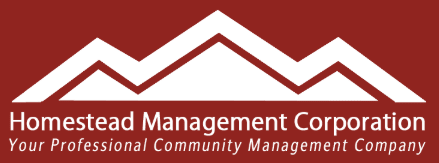“Why are we doing this the same way we have for the last 100 years?” This question haunted Andrés Leal during his early days as a civil engineer, watching crews lay bricks and r...
'Pick Up the Phone': How Homestead Management's Will Such Keeps HOA Management Personal in a Digital Age




In an era where digital transformation dominates business headlines, Will Such, CEO of Homestead Management Corporation, advocates for a refreshingly old-school approach to property management: just pick up the phone.
“When a car runs through a fence and the homeowner’s losing their mind because they can’t let their dogs and their kids out in their backyard, they don’t want to hear ‘submit an e-form,'” Such explains. His Colorado-based company, managing approximately 115 homeowners associations, maintains this practical philosophy while navigating an increasingly complex regulatory landscape.
Such’s perspective comes from a lifetime in the industry. As the head of a family business founded by his father in 1978, he literally grew up attending HOA board meetings. “While I don’t believe you learn this job by osmosis or at five playing a Game Boy, you certainly get exposed to some of those intangibles,” he reflects. “There’s a lot more to this job than dealing with the people and understanding the vibe of a room.”
This human element of property management, Such argues, has become increasingly important—and increasingly rare—since COVID-19. While digital communication has its place, he emphasizes that it can’t replace the nuanced understanding that comes from in-person interaction. “It’s not the same as sitting on the other side of the table… when you’re dealing with non-professionals, that is a very important thing to notice when a person is not saying anything, but they are beet red.”
Colorado’s HOA landscape has evolved significantly during Such’s tenure. The state’s first major legislative framework, the Colorado Common Interest Ownership Act (CIOWA), was established in 1992. However, recent years have seen an acceleration of regulatory changes, with new statutes emerging annually—often in response to individual complaints.
Such offers a nuanced view of these regulations. While new requirements around violations and collections have standardized processes across HOAs, making management more systematic, they’ve also introduced significant costs that ultimately fall on homeowners. He cites one 900-home community that now pays approximately $1,000 monthly just in mandated mailing expenses.
“Any statute that has remained, while we moan and groan about the pains of having to learn those statutes, they all seem to actually help us in the long run,” Such acknowledges. “But the detriment is that they are all expensive to the end user, which is the homeowner.”
Despite these challenges, the HOA management industry in Colorado continues to grow, driven by municipal requirements that make HOAs nearly mandatory for new developments. As the state experiences sustained population growth, Such sees endless potential in the market. However, he differentiates his company through its focus on fundamental service rather than technological bells and whistles.
“Here’s the elevator sales pitch: we do the job,” Such states plainly. While competitors focus on new technologies and sleek websites, Homestead Management prioritizes practical problem-solving. “If you don’t get the fence fixed, you don’t do the job.”
This approach resonates across demographics, challenging the assumption that only older residents prefer phone calls to digital interfaces. “We used to think that was an old person trait,” Such notes. “But as time continues and people get more and more frustrated with ‘submit your e-form,’ it’s everybody. It’s no longer a fuddy-duddy kind of response.”
In an industry that often makes headlines for enforcement actions and foreclosures, Such’s perspective suggests that successful HOA management requires balancing modern efficiency with old-fashioned responsiveness. While Homestead Management embraces necessary technological tools, their continued success stems from a simple formula: “Between the never-ending market, simply returning phone calls, and doing what is called for… if you do those three things, you’ll never run out of business.”
Similar Articles
Explore similar articles from Our Team of Experts.


After three decades in design and construction, Michael Miller’s vision for revolutionizing property art displays began in an unexpected place – luxury retail. “I really lo...


When Julie Schechter graduated from Brooklyn Law School during the recession 15 years ago, she jokes she “begrudgingly” took a job at her father’s small firm representing c...


“Leading the next generation of Boston development with unwavering passion, boundless energy and commitment to sophisticated design.” This vision statement from High Street Devel...


“We’ve evolved significantly since 2011, when we spun out of First American as primarily a mortgage-focused company. Now, 14 years later, we serve multiple industries,” exp...




